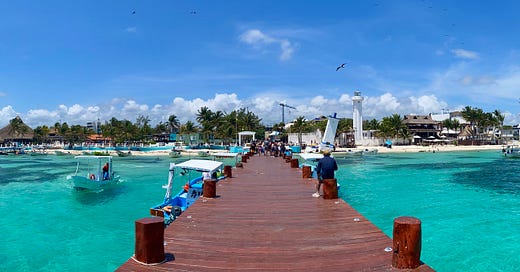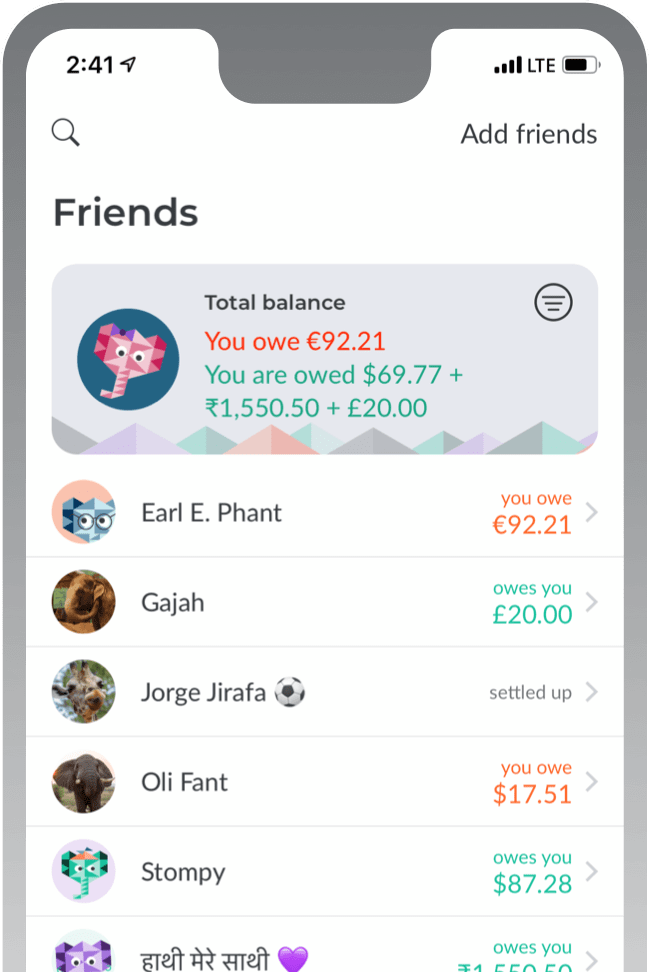From the Yucatán with Love (and a Side of Existential Dread)
Plus: A sun-soaked island has reopened its Nomad Visa program; a recent deportation case highlights tourist visa concerns for housesitters and other travelers
Welcome to Midlife Nomads, your weekly hit of real talk, smart ideas, and helpful tools for building a location-independent life through remote work, travel, and business.
I’ve been soaking up a precious few final days (for now) in the Yucatán, feeling both grateful for the time here and increasingly uneasy about what comes next.
With diplomatic tensions rising between the U.S., Canada, and Mexico—and an election looming in which we can only hope Canada doesn’t follow in America’s footsteps—the idea of establishing a second residency continues to weigh heavily on my mind.
And so it was timely this week when I saw that Hannah Dixon, creator of the Digital Nomad Kit and super-successful Virtual Excellence Academy, shared her ongoing journey through Mexico’s residency process with Facebook friends and followers.
Hannah and her wife, Kim, are more than two years into their permanent residency journey. She generously offered practical tips and vetted contacts, and some more interesting Q&A came out in the comments. It’s worth checking out here if you're wondering about Mexico as a second residency option.
For me, Mexico continues to earn its place on my shortlist. Life here is easy in the best ways: fresh food is abundant and affordable, beaches and pools are within reach, and pedestrian-friendly neighbourhoods make it easy to stay active without braving icy sidewalks.
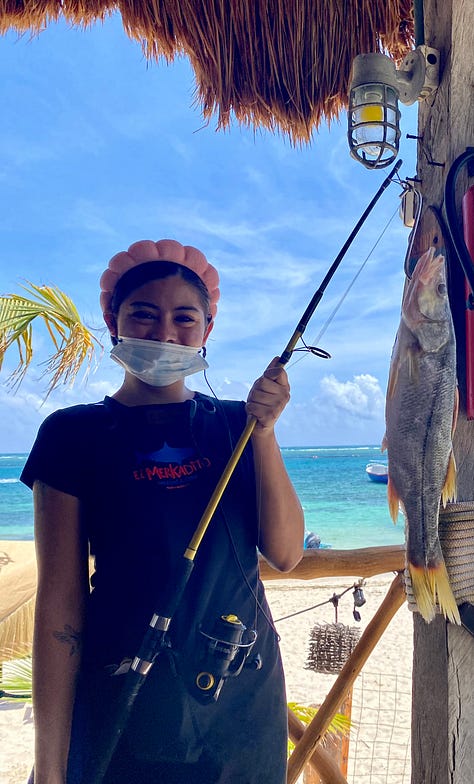
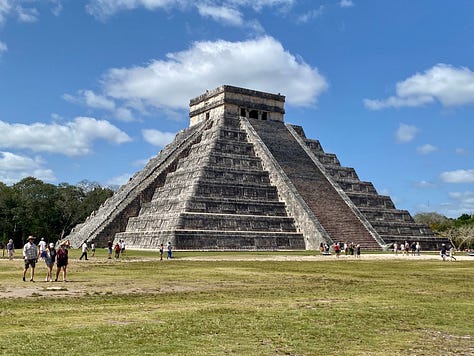
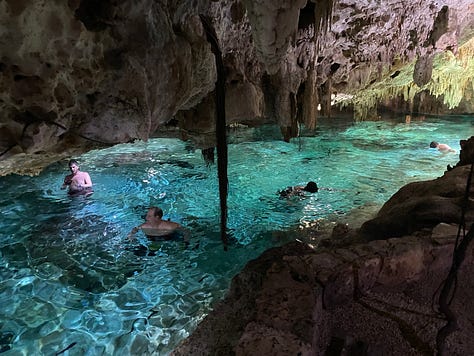
Disclosure: This post may contain affiliate links, meaning I get a commission if you decide to make a purchase through links on this site, at no cost to you – because a girl’s gotta eat… and travel.
The Yucatán definitely isn’t the most affordable area of Mexico, but it can be a heck of a lot of fun. And while you can blow the budget in places like Playa del Carmen or Tulum, living more like the locals keeps things manageable and makes this lifestyle more sustainable.
Most of the midlife nomads I know are still juggling demanding careers or building businesses while chasing that slower, more intentional pace of life. I’ve met very few FIRE folks (financially independent, retired early) in my travels. Typically, the people I meet are still working at least part-time, and the thought of a traditional retirement—that is, never working again and simply living off savings—is getting further and further away. For some, never working again is not even a desirable future state they’re considering at all.
Personally, I’m a contract writer for a few large tech companies. I’m editor of The Owen Sound Current (an independent news publication that goes out five days a week), and write Midlife Nomads and Writers’ Den. I also try to write books. (Don’t ask how that’s going lately.) But I think I’ll probably just keep writing until I die. ¯\_(ツ)_/¯
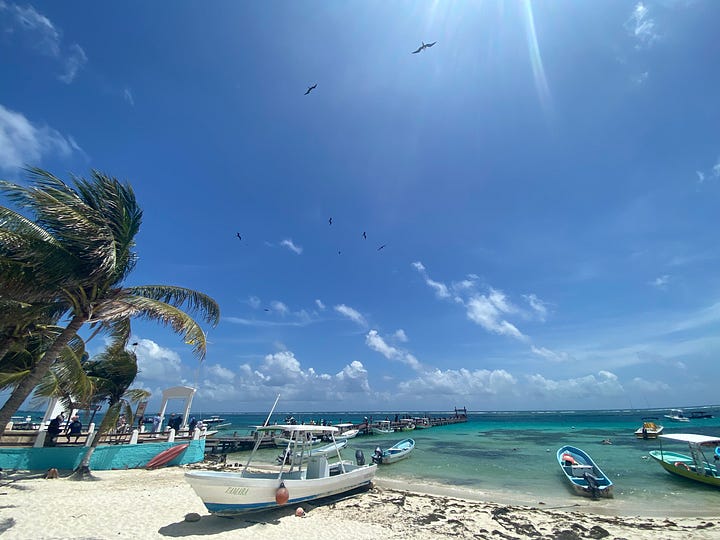
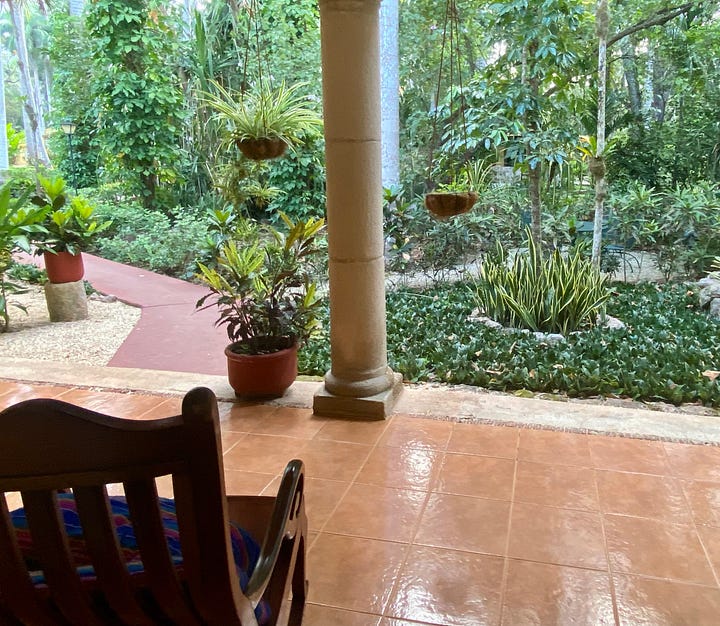
Anyway, staying productive and connected requires a combination of good infrastructure and easy living. This area of Mexico delivers with reliable internet, fresh local food, lots of outdoor living, and good public transportation (especially now, with Tren Maya in addition to the ADO buses, collectivos, and taxis). That kind of ease matters when you’re doing real work and trying to enjoy where you are.
A warning for budget travelers… the Yucatán isn’t the place for low-budget accommodations, unless you’re willing to stay long enough to rent a local apartment long-term or able to buy a place of your own.
While planning for this winter, I was disappointed to learn that the Selina in Playa Del Carmen has permanently closed after staying in a private room with en suite bath there for 6 weeks in 2022. There was an Outsite Coliving in Tulum for a while, but it seems to have closed down, too.
With that said, there’s no shortage of hotels and Airbnbs. Coliving could still be an option, if you can get some friends together and make it work in a shared house.
As I gear up for a spring trip to Mexico City with a group, I’m already plotting a future return to the Yucatán. It’s left its mark… and maybe, just maybe, it’s the beginning of something more permanent.
Here are a few other things from the nomad and expat world that caught my eye this week:
Cyprus Reopens Its Digital Nomad Visa Program

Cyprus is once again accepting applications for its Digital Nomad Visa, which is great news for remote workers. The sun-soaked island had reportedly stopped accepting digital nomad visa applications in January 2024, as all 500 available spots had been filled.
This visa offers up to 3 years of Mediterranean living for non-EU/EEA nationals who earn at least €3,500/month and work remotely for clients abroad. With its relatively low cost of living, English-friendly vibe, and potential tax perks if you stay over 183 days, Cyprus can be a relaxed yet strategic base for digital nomads.
About That British Tourist Detained in America…
Without falling into the rabbit hole of atrocities happening in the U.S. right now, one story stands out as a caution for housesitters, WWOOFers, and backpackers.
Becky Burke, 28, was picked up while backpacking in the U.S. on a tourist visa and detained for weeks, until she was finally deported back home to the U.K..
The issue? Officials determined that by doing chores for a host family, she was actually “working” and therefore violated her visa. (That she was held for weeks without due process is a whole other story.)
This is a common topic is housesitting circles and unfortunately, the United States is not the only country that may take issue with domestic chores exchanged for accommodations. It can be perceived as taking work away from locals, especially in lesser developed or tourism-heavy countries where domestic work is a solid source of employment.
Related:
The moral of the story? Be cautious and aware that disclosing housesitting or work exchange accommodations arrangements might violate a tourist visa’s conditions. I’m not saying it’s right or wrong, and I’m not telling you to lie to border guards. Just know this is a widespread-enough issue that it should be on your radar, and plan accordingly.
Our Hearts Go Out to WFH Aussie Friends…
The debate over remote work has become a major election issue in Australia, as the opposition pushes for a full return to office for public servants. The WFH banned being discussed would impact hundreds of thousands of workers and potentially add thousands in commuting costs.
Australia’s Prime Minister has pushed back, supporting flexible work as essential for productivity, caregiving, and economic relief, especially for those in outer suburbs. The Australian federal election is scheduled for Saturday, May 3, 2025.
We’ll be crossing our fingers and sending all the good vibes their way that common sense reigns. Life is difficult enough in 2025 without an unnecessary commute just to get butts in chairs.
Tool to Know: Splitwise
It’s not a new app, but one that’s worth having on your radar, especially if you're sharing expenses with others while traveling or living in coliving spaces.
Splitwise makes it easy to track shared costs, settle up without awkward conversations, and keep everyone on the same page. Just get everyone in the house on the app, log expenses as they come up, and Splitwise keeps a running tally of who owes who for groceries, rent, meals, etc. It’s a simple way to avoid the “who owes what” confusion that can creep into communal living.
That’s it for now… 👋 See you next week!
Miranda
P.S. Looking for a reliable sidegig or even a new career to fuel your next steps? Join me in The Writers’ Den, where I help writers improve their craft and get paid more for writing about what they know in just a few minutes each weekday morning, with lessons like these:


